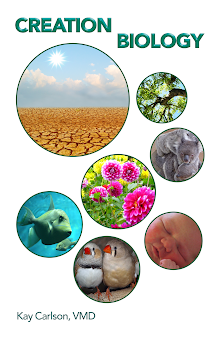
It has now been over a year since I started this blog! I am so thankful to have the opportunity to write in a forum accessible to public eye. This blog has been a great outlet, and past posts are there for anyone interested in Intelligent Design Theory (ID). I had said at the end of last year that I'd like to write about other topics, then got started on Origins and am still concentrating on ID. I hope to eventually diversify, but who knows where the blog will go from here. In any case, I sure have enjoyed it and I hope you do too.
The journal Science has had a series of articles in honor of Charles Darwin's 200th birthday and 150th anniversary of his book, Origin of Species. In Vol. 323,, Issue 5915, Feb. 6, 2009, they concentrate on the progress made in research about how species came to be. Now, I know that we can all read the same thing and come up with different conclusions. I'm sure many have pride in all the knowledge we have gained in the past years and how far we have come. But, anyone who reads these articles must be able to see we do not have all the answers about evolution. A startling article is by Fraser et al., "The Bacterial Species Challenge: Making Sense of Genetic and Ecological Diversity," Science 323, 5915 (Feb. 6, 2009): 741-746. In this link to the abstract, they speak of the single-cell organisms, bacteria and archaea, and then say:
Taxonomists classify these organisms into species in much the same way as they classify eukaryotes, but differences in their biology—including horizontal gene transfer between distantly related taxa and variable rates of homologous recombination—mean that we still do not understand what a bacterial species is. (p.741)
Yes, you read correctly. Scientists do not even know what a bacterial species is! And bacteria are among the most numerous of organisms on the planet. If they don't know what a bacterial species is, they don't really understand speciation at all. The contrast between what was expected by scientists and the actual results of whole-genome sequencing is revealed by the above statement.
I have added a new link in the right column under Research Reading. It is an article by scientific researchers of the National Center for Biotechnology Information. The article is Koonin and Wolf, "Genomics of Bacteria and Archaea: the emerging dynamic view of the prokaryotic world," Nucleic Acids Research 36, 21 (Dec. 2008): 668-719. I've described this article before HERE, but I hadn't yet added the link. The link takes you to an abstract, but you can get the entire free article by clicking another link there. This is an incredible resource because it is a major effort of studying full genomes of different species at the dawn of our genomic age. And the results were totally unexpected.
The article shows that the "Tree of Life" predicted by Darwin is non-existent. There is what they call a "Dynamic" interplay of structures of organisms. There is no small changing from one to the next, up a smooth, slow gradient. There are some genes that stay the same, and some that change widely and some that are totally unique to the organism in question.
Intelligent Design Theory has recognized that the number of combinations of amino acids (which make up proteins) and nucleic acids (which make up genes) are too numerous to expect nature itself to be able to organize them in the meaningful, functional ways we find them.
The science community will try to formulate mathematical models in a way that makes sense of the new data. But it is important to realize that Darwin's conjecture of small increments of change, which made naturalistic and completely random evolution seem so easy, is now proven wrong.
I will be giving a talk on ID March 14 at the Grand Dialogue in Grand Rapids, MI and my husband and I are taking a short vacation afterwards.
2013 Update: My interest in Intelligent Design Theory (ID) has changed to what is called "Special Creationism," the belief that God created species separately and directly. Much of the biological science in ID is similar to Special Creationism.
2013 Update: My interest in Intelligent Design Theory (ID) has changed to what is called "Special Creationism," the belief that God created species separately and directly. Much of the biological science in ID is similar to Special Creationism.






No comments:
Post a Comment
Comments are moderated. You do not have to agree, but please be civil. Thanks for your interest.